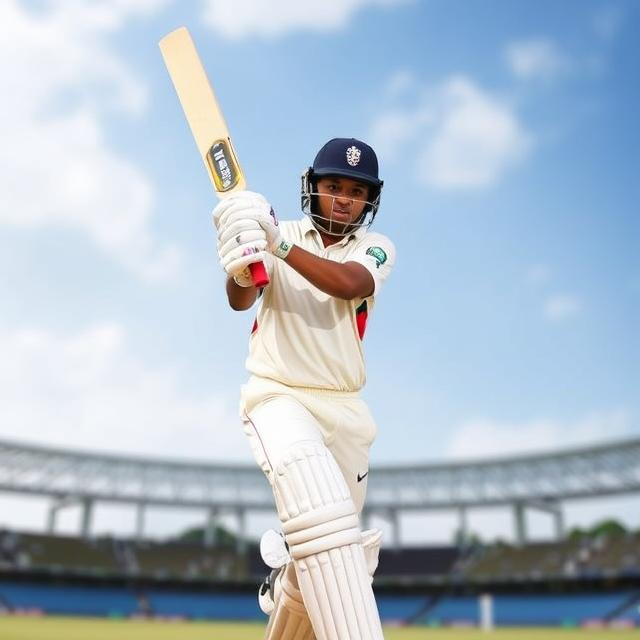Cricket World Cup 2019: Pakistan’s Pointless Performances and Missed Opportunities

Cricket World Cup 2019: Pakistan’s Pointless Performances and Missed Opportunities
The 2019 Cricket World Cup, held in England and Wales, offered Pakistan a tantalizing glimpse of glory, but ultimately, the Men in Green left the tournament with a bitter taste of missed chances. This analysis delves into their struggles, examining crucial moments, key players, and the underlying reasons behind their disappointing performance.
Pakistan’s campaign in the 2019 Cricket World Cup was a complex narrative of flashes of brilliance and frustrating inconsistency. The team possessed the firepower and individual talent to contend for a title, but the crucial execution often fell short.
Early Promise, Followed by Dismal Showings
Pakistan began the tournament with a promising victory, but their subsequent performances were far from inspiring. The team showcased periods of exceptional batting and bowling, but these moments were interspersed with lapses in concentration and questionable tactics, particularly in the crucial group stage matches.
Analyzing individual player performances reveals a tale of both brilliance and disappointment. While some players shone with occasional centuries and crucial wickets, overall consistency remained elusive. Captaincy, team strategies, and the overall atmosphere of the squad were critical factors contributing to their performance.
Critical Moments and Missed Opportunities
Several matches in the tournament became pivotal in shaping Pakistan’s fate. Defeats against crucial opponents, combined with underwhelming results against seemingly weaker teams, highlighted the need for more consistent performance, not just during decisive matches.
The team’s approach to different batting orders, varied field placements, and the strategic use of their bowlers, such as the impressive Hasan Ali, required better planning and execution. The inability to close out matches, despite promising starts, became a recurring theme that ultimately cost them crucial victories.
Detailed Breakdown of Matches
Let’s delve into specific instances to illustrate the points made above. Take, for example, Pakistan’s match against the formidable West Indies. The match was crucial in the group stage, and a win was essential to cementing their place in the semi-finals. While they showcased some early promise and aggressive batting, ultimately, they couldn’t secure the win. This was mirrored in other games, as inconsistent performances were a recurring problem that needed addressing.
Pakistan’s matches against teams like Australia and England provided insights into their strengths and weaknesses. While they showcased the potential to score big, they also stumbled at crucial junctures. The team often faced issues with their approach to defending big totals, leading to collapses under pressure.
Their batting approach wasn’t consistently calibrated to the field conditions or the opposition’s strengths. The team had players who could dominate, but their performance wasn’t always in sync with the team’s overall strategy and the tactical maneuvers devised by the team management.
Furthermore, Pakistan’s bowling attacks, though effective at times, also lacked the crucial consistency and control. They struggled to contain runs in crucial phases of the match, leading to inconsistent performances against a variety of opponents, which unfortunately, significantly impacted their progress throughout the tournament.
Lessons Learned and Future Outlook
The 2019 Cricket World Cup, although disappointing for Pakistan, provided invaluable lessons. The team needs to address issues like consistency, meticulous planning, and strategic execution to improve their performance in future tournaments. A more focused approach to their training regime, incorporating realistic match simulations and a wider spectrum of game scenarios, would contribute significantly to their preparedness.
The players need to be more focused and disciplined. Maintaining a strong mindset and staying united under pressure is crucial. This includes bolstering individual skillsets in crucial areas like decision-making under pressure and optimizing performance strategies to achieve superior outcomes in critical moments, and consistently adapting to match conditions. Addressing the team’s mental fortitude through targeted psychological training and building a stronger team camaraderie and understanding is equally important. A holistic approach focusing on all these areas could prove pivotal in the future.
Overall, Pakistan’s performance in the 2019 Cricket World Cup wasn’t simply about individual failures. It highlighted a systemic need for improvement across all facets of their game. A robust analysis of their performance, combined with targeted training programs to bolster mental strength and consistency, is a necessary next step to ensure that their future performances meet their full potential.
The team management and coaches must also take a keen interest in identifying and addressing the underlying causes of inconsistencies. This requires meticulous analysis of every match, a focus on individual strengths, and careful development of strategic plans to optimize each player’s potential, not just during the World Cup but throughout the entire cricketing year. Only then can Pakistan hope to reach its full potential and secure their place among the top contenders on the world stage.
Conclusion: A Missed Opportunity, But a Stepping Stone
The 2019 Cricket World Cup served as a significant learning experience for Pakistan. While the result was not what they had hoped for, the team’s performance offered ample room for improvement and reflection. Addressing the crucial elements of consistency, meticulous planning, and a stronger mental fortitude can help shape Pakistan into a formidable force in future international competitions.
This article provides a comprehensive analysis of Pakistan’s performance in the 2019 World Cup. We’ve meticulously examined their strengths, weaknesses, and the critical moments that influenced their outcome. By understanding these key areas, Pakistani cricket fans and experts alike can gain valuable insights into how the team can prepare for future challenges and achieve a more successful outcome in future competitions. We hope this analysis helps fans and teams alike to learn from the past and confidently embrace the future.
Hopefully, this extensive analysis has helped paint a clear picture of Pakistan’s performance and the opportunities missed. The lessons learned from this tournament can guide them toward future success.